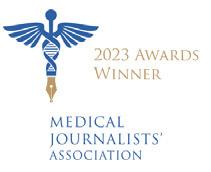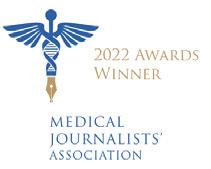doctor
The magazine for BMA members





























3 At a glance
The BMA sets out its priorities for the general election
4-7
More than words
The immense power of storytelling in medicine
8-13
Here, there and everywhere
Huge increase in applicants getting their last choice for foundation jobs
14-17
Out on a limb
Life as a GP in Orkney
18-19
‘Things must change’ Junior doctors strike for fair pay in Northern Ireland 20-23
Nowhere left to turn Grave concerns for homeless patients after a specialist service closes
24 Your BMA
The ARM is about representing all our members
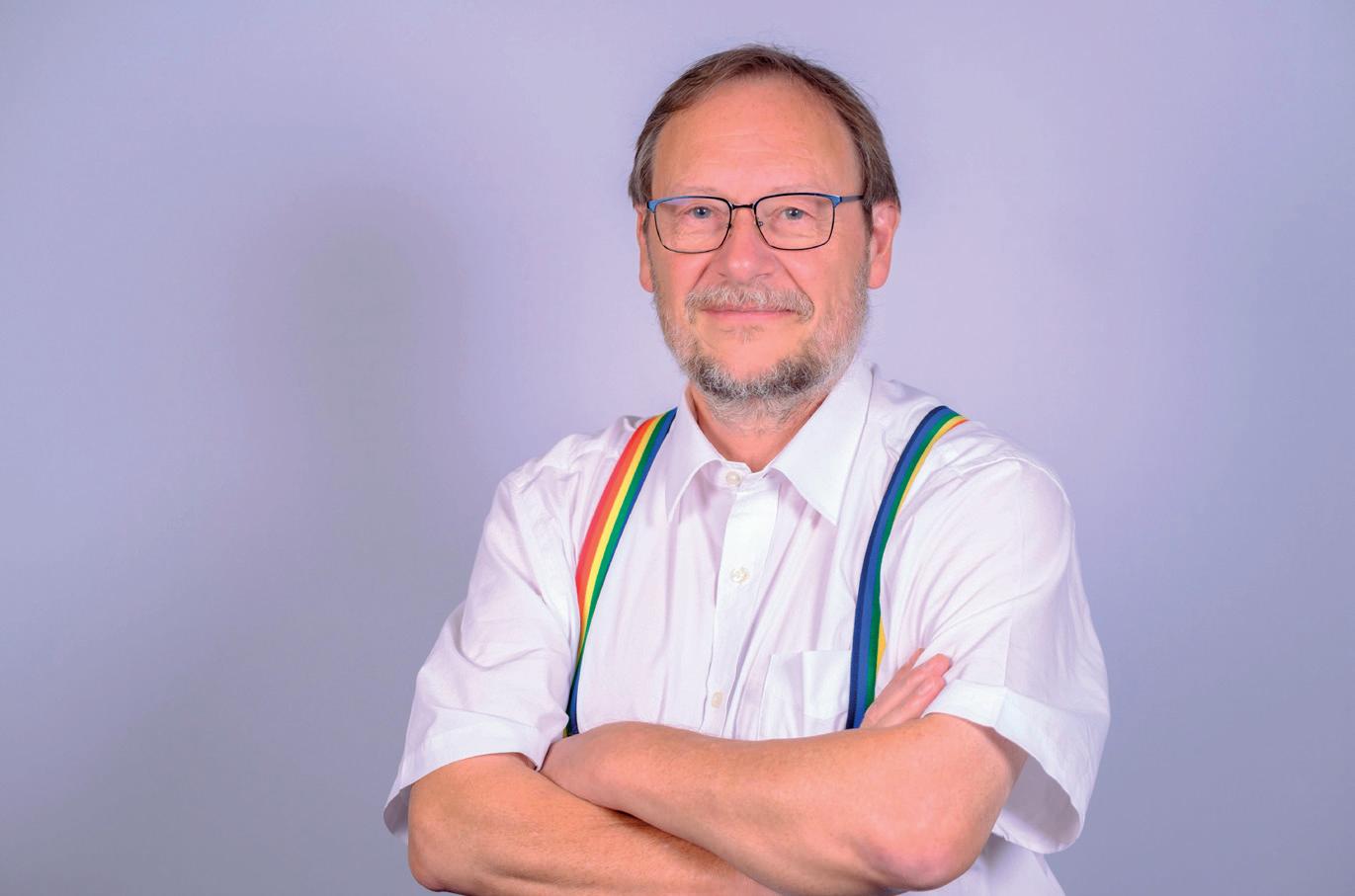
This election is a chance to turn around a health service in crisis. Doctors are exhausted after years of being stretched beyond breaking point.
We have been pushed to take industrial action following years of real-terms pay cuts, which have left us feeling undervalued, working in a health service in the midst of a staffing crisis.
Every day, doctors have to deal with the legacy of funding failing to keep pace with demand, cuts to services across the board and the distress of working in a broken system – knowing they cannot provide the level of care patients deserve.
Your BMA has issued a manifesto – Patients Need Doctors – for the competing parties at this election which calls for the vital role doctors play to be valued and pay to be restored, for the incoming government to protect doctors from any further erosion of their professional role and employment rights, and to train and provide jobs for the next generation of doctors to meet demand.
The manifesto also urges proper funding for the future of the health service and for politicians to safeguard the public’s health and wellbeing, prioritising preventive care.
In this issue of The Doctor we report from the picket lines as junior doctors in Northern Ireland go on strike. Junior doctors in England are also taking further industrial action later this month following the prime minister’s failure to make a credible offer despite three months of talks.
Elsewhere in the June issue of the magazine, we reveal that homeless patients living with mental and physical health problems and destitution have been left with nowhere to turn but emergency departments following the closure of a specialist GP practice and speak to the doctors and charity staff advocating for change.
We also spend time in Orkney with an island-hopping out-of-hours doctor who has cared for patients from the most remote communities off the coast of Scotland to the Falkland Islands.
Finally, I wanted to say how sorry I was to hear of the death of Michael Mosley, a much-loved and respected doctor and broadcaster, who had such a wide effect on patients, the public and our profession. Our condolences go to his family.
Keep in touch with the BMA online at instagram.com/thebma twitter.com/TheBMA
When a rain-soaked Rishi Sunak stood before a dripping podium outside No 10 Downing Street last month to announce a general election for 4 July, his decision seemed to take many people in the country by surprise.
With an election having previously been widely anticipated for the autumn months, the prime minister’s decision to go to the country left MPs and political pundits alike scrambling to ready themselves for a long and arduous campaign trail.
By comparison, doctors and the BMA met the news of an election with perhaps a greater state of readiness than most politicians, with vast sections of the medical profession having already been mobilised and engaged by the fight for pay restoration, for more than a year.
With weeks to go until polling day, and ahead of the launch of the main political parties’ policy platforms, the BMA has published its own manifesto, Patients Need Doctors , which outlines five critical actions on health the next UK Government must commit to.
‘This election is a chance to turn around a health service in crisis,’ warns association council chair Philip Banfield in his introduction to the manifesto.
‘Doctors are exhausted after years of being stretched beyond breaking point. They have been pushed to take industrial action following years of real-terms pay cuts leaving them feeling undervalued, working in a health service in the midst of a staffing crisis.’
Restoration of pay is indeed central to the first of the five actions set out in the manifesto, which calls for the ‘vital role doctors play across all health services’ to be better valued by those entrusted with the NHS’s management.
Specific demands include restoring doctors’ pay after years of sub-inflationary pay settlements, delivering a reformed and truly independent pay review body, and a commitment to not restoring the lifetime and annual allowances on pensions, scrapped under the previous government.
Alongside pay, the manifesto also seeks to protect doctors’ rights and patient safety by calling for an end to the substitution of doctors by medical associate professionals, a halt to recruitment of physician
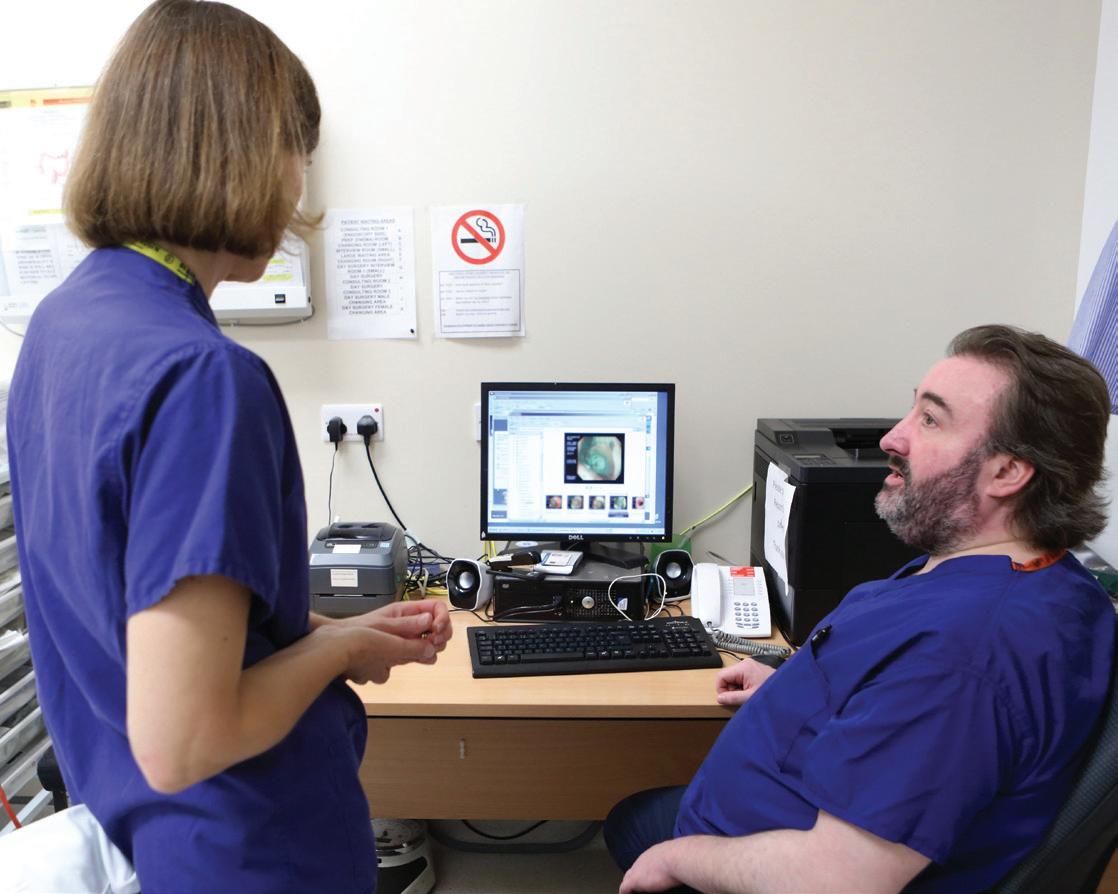
associates and providing new legal protections to whistleblowers in the NHS.
The BMA is also calling for the scrapping of the anti-union Strikes (Minimum Service Levels) Act and new laws that would make future governments legally accountable for safe staffing levels in the health service.
An increase in the numbers of undergraduate training places and postgraduate roles, improved job allocation for newly qualified doctors and an overhaul of the NHS bursary scheme are among the calls set out in the manifesto’s third action point.
With general practice in England already in dispute over the imposition of a reviled national contract, the BMA is calling for the next government to deliver a revised set of terms for GPs in England and Northern Ireland that will ensure the sustainability of the NHS GP partnership model.
Lastly, the BMA’s manifesto calls for the new Government to commit to investing in the health service including an injection of capital funding to improve infrastructure and restoring the public health grant in England to at least the funding levels of 2015/16.
While regarding the upcoming election as an opportunity for a fresh start and chance to renew the NHS, Dr Banfield warns that a continuation down the current path will ultimately see an ever-greater haemorrhaging of doctors from the health service and a worsening of services for patients.
‘Every day doctors have to deal with the legacy of funding failing to keep pace with demand, cuts to services across the board, and the distress of working in a broken system – knowing they cannot provide the level of care that patients deserve,’ he warns.
‘The next Government cannot allow our health services to continue this way: all parties must make the health of all their top priority, so we can give the public the care they deserve.’

Whether it’s helping to shape TV plots, using vivid prose to reassure patients, or tapping the power of social influencers, there is a recognition among doctors of the immense power of storytelling in medicine.
Seren Boyd reports
Aconsultant’s ‘Letter from ICU’ during COVID – a promise of care for the most vulnerable – goes viral.
Mr Bates vs The Post Office , a TV drama about a national scandal that has been rumbling on for years, catapults the sub-postmasters’ fight for justice to the top of the political agenda
Army veteran ‘Captain Tom’ walks 100 lengths of his garden each day in lockdown to mark his 100th birthday and raise funds for health charities, and becomes a national hero.
All three captured the public imagination unexpectedly, although their message was not new. What unites them is the power of story: one person’s struggle coming to represent the human condition and forging a strong emotional bond with us.
There is a growing recognition that storytelling, that ageold social glue and sense-maker, can help organisations where people are finding it hard to connect with each other or with clients.
So, are there things healthcare can learn from storytelling? Three doctors involved in both fields share some thoughts.
Shared connection
John Powell, who trained in psychiatry and public health medicine, is professor of digital healthcare at Oxford University. He is also a medical adviser to TV and film, and an occasional
writer of fiction and comedy himself.
Incongruously, given his area of research is digital healthcare, he specialises in advising on historical dramas, from ITV’s Downton Abbey to the film Ammonite . It is a creative outlet for him but it is instructive, too.
He was the adviser for Lady Sybil’s eclampsia in Downton , for example, helping scriptwriters to shape the dialogue between her GP and her obstetrician, then working on set to ensure her treatment and her death played out convincingly.
The eclampsia storyline was never intended as an awareness campaign: the medical adviser’s role is about charting a course between medical veracity and dramatic imperatives, not pushing a public health message.
But Downton’s global reach and viewers’ emotional connection with a hugely sympathetic character probably had as great an effect as any campaign the NHS or pre-eclampsia charity could achieve.
‘I love the creativity of forging something from experience and imagination that can convey an important message in an entertaining way,’ says Prof Powell. ‘I like the idea of an audience having a shared, simultaneous connection with the narrative, which can then spur further reflection and discussion. It also has a much greater reach than any academic paper.’
Christopher Peters, a surgeon at Imperial College Healthcare NHS Trust, has worked as a medical adviser on many a health-related plot in several TV series. This
includes the highly acclaimed EastEnders storyline about Stacey Branning’s postpartum psychosis, part of a BBC programming season exploring mentalhealth issues.
Yet, the example he gives of that powerful connection that sets us firmly in a character’s shoes is ITV’s Mr Bates , which transformed a dry legal case into a story about real people.
‘I’ve been reading about the Post Office scandal for years but it hadn’t hit a certain level of public awareness until ITV made a drama about it,’ says Mr Peters. ‘It’s the difference between reading something which is abstract, and not relatable to you, and seeing a really good actor translating it into your own lived experience.’
Intensive care consultant Matt Morgan wrote ‘A letter from ICU’ in March 2020, at a time of national crisis when people were searching for connection, empathy and meaning.
His message to those most at risk of the virus was sparse. There are times when intensive care ‘offers no fi x’, for all its ‘fancy machines, powerful drugs, and talented staff ’, he wrote in the BMJ . But, he said, ‘We will be honest, we will hold your hand, we will be there. We have not forgotten about you’.
It was an unplanned response to another long, late, devastating shift – but it spoke to millions as if penned at their bedside.
‘The truth is those letters were written for my own family: I’ve got relatives who are vulnerable, frail, elderly,’
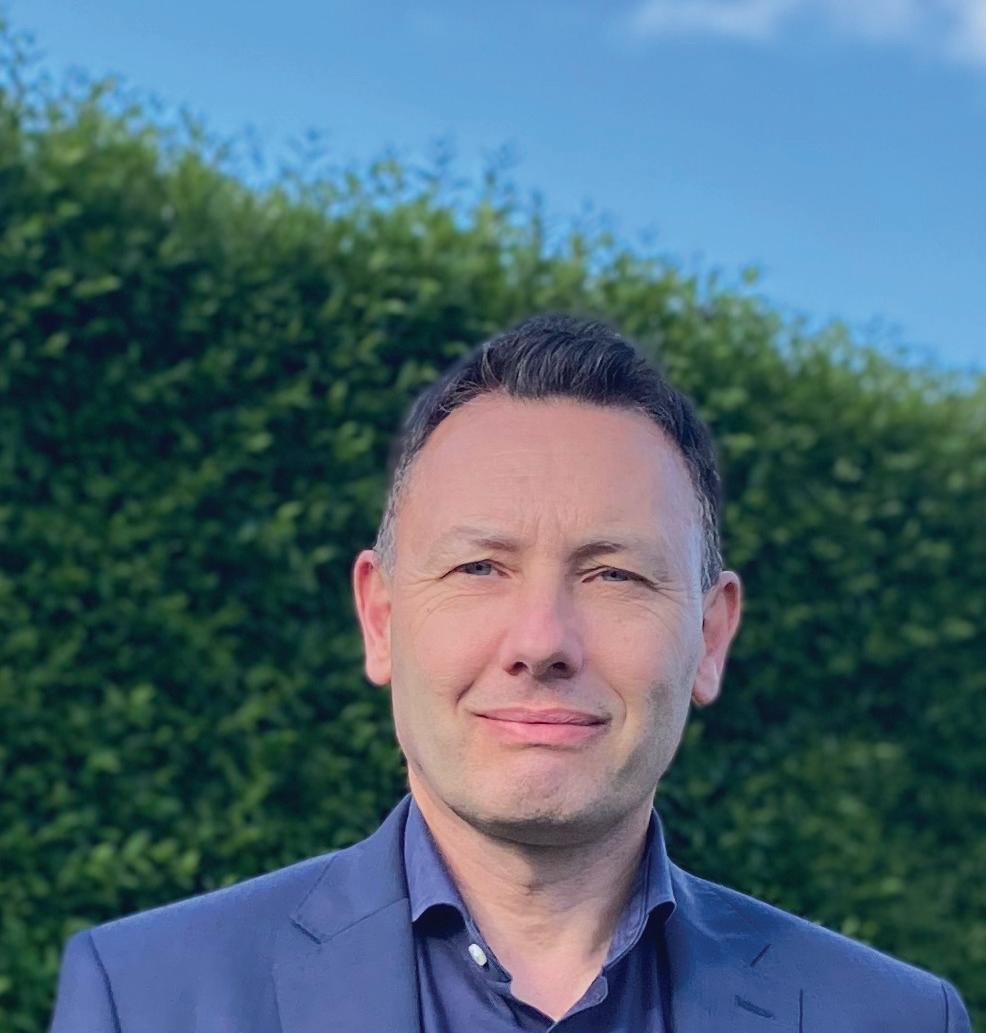

says Dr Morgan. ‘I was sitting on the sofa, family in bed, and I just wrote it on my phone, almost like a note. Then, 48 hours later, there was Sky News, ITV, BBC News, outside the house. Very bizarre.’
Dr Morgan’s love of narrative was sparked at medical school in Cardiff. ‘A neurologist, Tom Hughes, started our lectures with a simple question: “What do all patients want?” And the answer he gave was: “Somebody to make sense of their story.”
‘In ICU, for example, often there isn’t a cure: about onein-fi ve people admitted to ICU will die in hospital. “Why?” is often the question they ask.
‘Sometimes, the best you can do is to make sense of the story for the people who love them.’
Dr Morgan, who is the author of two popular science books, often writes to patients in ICU, in simple, acronym-free language, whether or not they will ever read their notes.
‘During COVID I wrote for one patient: “I met with you
‘I love the creativity of forging something that can convey an important message’
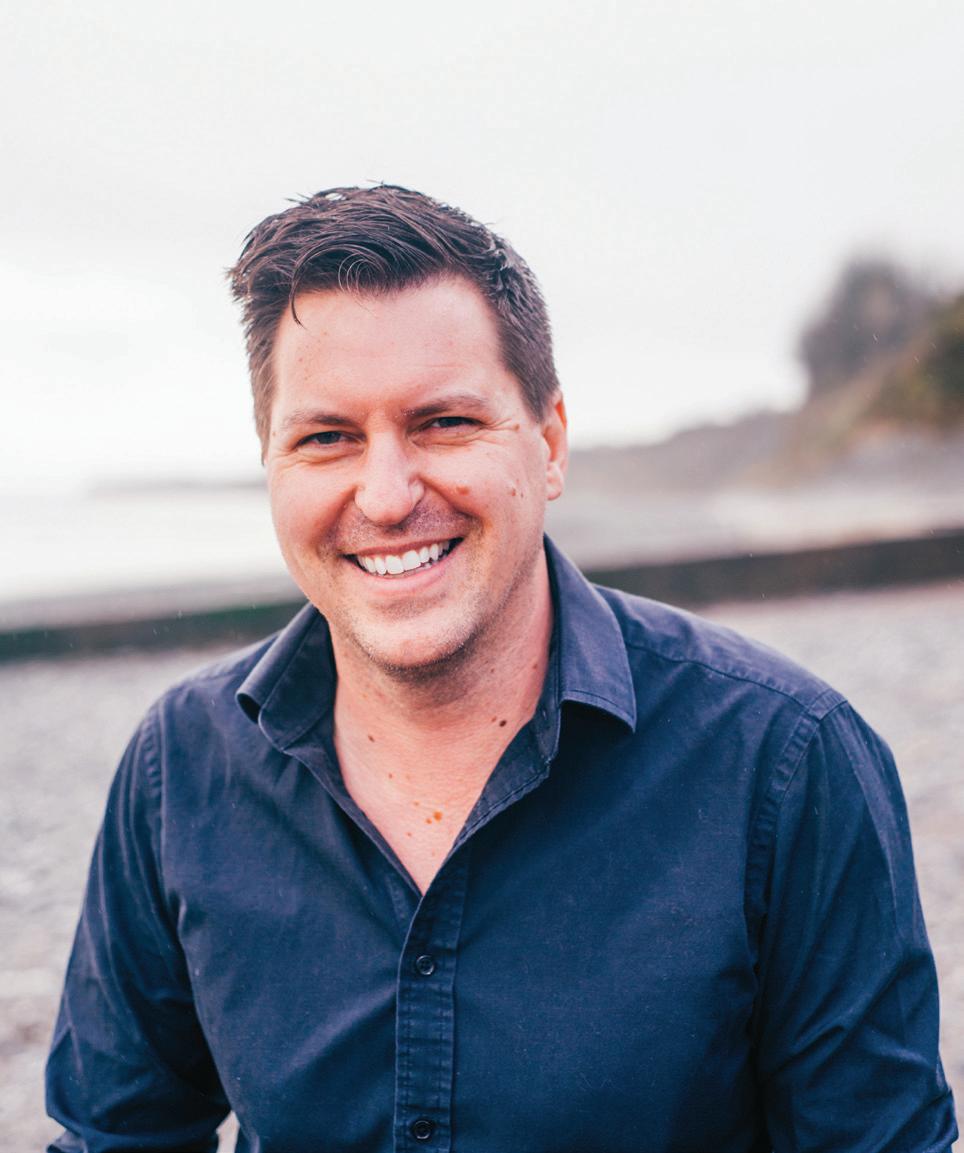
today. I told you how unwell you were. You told me about your work.” And that person subsequently died. The family, who were overseas, asked for a copy of the medical notes and could see somebody had been with their loved one shortly before they died.
Increasingly, organisations are using storytelling to strengthen team culture and comms.
After space agency NASA experienced the loss of the Challenger space shuttle and its crew in 1986, it emerged staff had not felt able to share their concerns about the shuttle’s safety, or their concerns had been ignored.
To help rebuild a culture of knowledge sharing, NASA eventually hired not project management consultants but storytellers. It set up forums where people shared personal perspectives, learnt from one another and reconnected.
Medicine too has its Balint groups, its surgical morbidity and mortality meetings, its clinical debriefs. But perhaps there are other things it can learn from storytelling and drama.
people to make-up artists and prosthetic experts – all of whom are working together to produce the best-quality end result they can. Exactly like we do in cancer care. This pulling together is massively motivating and satisfying.’
What interests Dr Morgan about theatre and its ‘more radical cross-disciplinary working’ especially is the way it encourages subjective contributions (when the director asks, ‘Have you thought about saying it like this?’) and cultivates empathy through seeing up close other people’s contribution and challenges.
He is reminded that ‘the most valuable communication skills training we have is often with actors in medical school, who do an amazing job crying, shouting, laughing’.
‘I’m pretty passionate about trying to get medical professionals to think about narrative in their own writing’
‘I’m pretty passionate about trying to get medical professionals to think about narrative in their own writing, rather than just using bullet points for everything. If we’re to have empathy, we need deeper connections with patients’ experiences. And narrative can capture the complexity of medicine when lists simply cannot.’
Dr Morgan’s recent role as medical adviser for Nye , Tim Price’s play about Aneurin Bevan, has reminded him that ‘every patient brings a story’, that they are ‘individuals with a past, possible futures, fears and aspirations’.
‘Narrative can capture the complexity of medicine when lists simply cannot’
‘Every day, I am a medical adviser really: the patient is the boss, not me. I’m there to help them understand, decide and communicate.’
Notably, when asked what has struck them most about working behind the scenes in drama and theatre, all three medical advisers mention the efficacy and sheer joy of onset multi-professional teams where everyone is focused on the same end: producing a show.
Prof Powell says he has learnt lessons for his own practice in having a ‘shared team goal, clear roles and responsibilities based on professional training and experience, and strong leadership’.
For Mr Peters, who is a cancer surgeon, working on set helps make sense of all that is powerful about a cancer multidisciplinary team.
‘You find a whole team of incredible experts – from actors, directors and camera
‘In ICU we have a lot of emergencies. We are teams thrown together, with a kind of director coordinating the resuscitation, advising people on different things, people having different tasks. It is clichéd to say it but theatre is definitely like medicine when it is working well.
‘Perhaps it is time to bring a little more theatre to the theatre, more art into the art of medicine.’
One of drama’s greatest gifts is the reminder we share a common struggle, and human behaviour is often predictable, that we’ve been here before.
When teaching a module on innovation as part of a healthcare leadership course, Prof Powell draws on his work as medical adviser to the writers of Casualty 1909. This was a hospital drama set in the early days of anaesthetics
when health workers were adapting to rapid change.
‘There is nothing new about innovation,’ he says. ‘In health systems we are always dealing with change. We’re struggling now to think, for example: How do we get AI systems adopted into hospitals?
‘There may be lessons for us from looking back and asking: How were the first anaesthetics introduced? Or how was a new medical profession established in Victorian times? The technology is new, but most of the challenges are not.’
If stories help health professionals reconnect with patients and colleagues, could they help healthcare connect more broadly, perhaps with those it struggles to persuade?
One serious challenge the health system needs to address, Dr Morgan says, is the widespread ‘lack of trust in institutions’, which plays out in reactions such as vaccine hesitancy.
During COVID, he was active on social media, challenging anti-vaxxers, although he is more wary now of engaging with them and helping algorithms highlight conspiracy theories.
Similarly, pushing back against negative portrayals of health professionals is something Mr Peters is very hot on.
‘One of the things I really try and get across in all the dramas I work on is: doctors really care about their patients and want to do the best by them.’
What is clear is the NHS
needs allies from other fields to help present its case, whether that is engaging the public, advocating on patients’ behalf to policymakers, or speaking up for its workforce.
The recent ITV drama Breathtaking made powerful policy points about personal protective equipment and staff wellbeing through a dramatised retelling of COVID’s early days in secondary care. Its author, Rachel Clarke, was a documentary-maker before going into palliative medicine.
And perhaps there are new alliances and new storytellers to be explored, says Prof Powell.
He is interested, for example, in the largely untapped potential of celebrities and influencers – those whose stories or values we find compelling – to persuade especially young people into healthy behaviour.
‘That age group live digital lives and get their information from TikTok or YouTube. We can’t just stand by and observe. Public health needs to engage with this world and begin to understand how it’s used for health messaging.’
He recently undertook a review of published work on social media and health which showed influencers can have significant effects on outcomes such as diet and body image.
One study showed how children were more likely to favour a healthier snack when the unhealthy alternative was promoted by an overweight influencer, suggesting
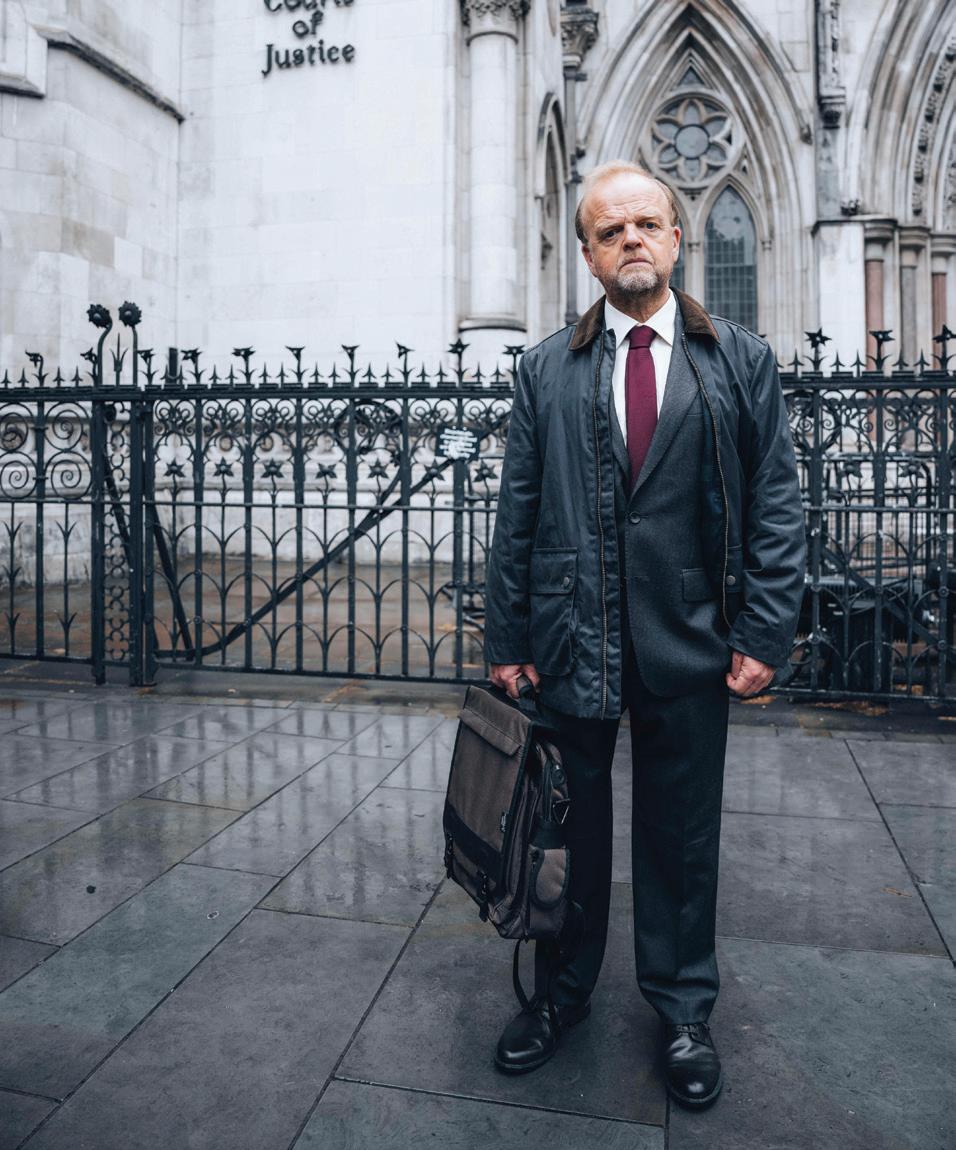
the messenger may be as important as the message.
Choosing Prof Sir Chris Whitty and Sir Patrick Vallance to front the daily COVID briefings during lockdown, to build public trust and compliance, was one of the Government’s smarter moves.
But perhaps there is another point: medicine needs also to find ways to tell its own story, distancing itself sometimes from the high drama of TV soaps. Being honest about ‘unfixable’ problems was the poignant part of Dr Morgan’s ‘Letter from ICU’ – and a good place to start, he says.
‘I often say there are probably only three important tools we have in ICU that save people’s lives: time, antibiotics and good nursing care. There are a few others, like surgery and steroids, but there is not a massive secret cupboard of cures. It is often the simple things which are the most impactful. We need to be clearer about what medicine can, should and should not do.’
‘It is time to bring a little more theatre to the theatre, more art into the art of medicine’
















A new system meant to make it fairer for final-year medical students applying for their first jobs has resulted in a huge increase in those getting their last choice of where they wanted to work in the UK. They tell Ben Ireland it has left them disoriented and demoralised
‘Atfirst I said, “I’m not going”.’
A Manchester-based final-year medical student given her 18th choice of 18 foundation schools, on the morning of her final exam, recalls the moment which left her considering whether she would accept her first offer of a job as a doctor.
‘I rang my mum in tears,’ she says. ‘She helped me focus on the immediate priority of the exam. After, one of the clinical fellows came over and asked how I found it. I broke down again; I couldn’t stop crying for three hours.’
After four to seven years of medical school, often racking up debts of tens of thousands of pounds, starting foundation school as a newly qualified doctor is daunting enough. And this year, growing numbers were sent many miles away from their first, second or third choices and their support networks.
that 37 times more applicants received their lowestranked choice than previously.
This year, for the first time, applicants were given a computer-generated rank that did not consider their medical school performance or require a SJT (situational judgement test).
Until 2023, applicants were ranked using a combination of these scores, which they were given before listing their foundation school choices. They were then allocated their preferred foundation schools, with a higher ranking giving more chance of receiving higher preferences.
‘Why rank our choices if so many people are given their last choice?’
This year’s intake is the first to experience the UKFPO (UK Foundation Programme) PIA (preference informed allocation) system, which was designed to give more new foundation year 1 doctors their first choices of deanery.
And while the UKFPO reported an ‘improvement’ in the proportion of this year’s medics receiving their first choice – from 71 to 75 per cent, or about 7,300 out of 9,702 – it remains lower than the 2020-21 peak of 77 per cent. Meanwhile, the rate of those who received either their first or second choices dropped from 86 to 83 per cent, and the proportion getting one of their top-five choices from 95 to 92 per cent.
The BMA medical students committee has deduced
With the new algorithm, applicants were ranked by a computer and, in this order, allocated a place on their first choice of foundation programme if available. They did not know their random rankings when they made their choices. If a place at their top choice was not available, they were skipped as the computer worked through the list to give as many students as possible their first choices. The system then worked through unassigned applicants with each allocated a place in their highest preferred programme that still had places, and this was repeated until the list was exhausted. Applicants could choose to link their application with others, but if so would be given places based on what was available when the lower-ranking of the linked applicants was chosen by the computer. They could appeal the outcome, but only on the basis that due process was not followed.
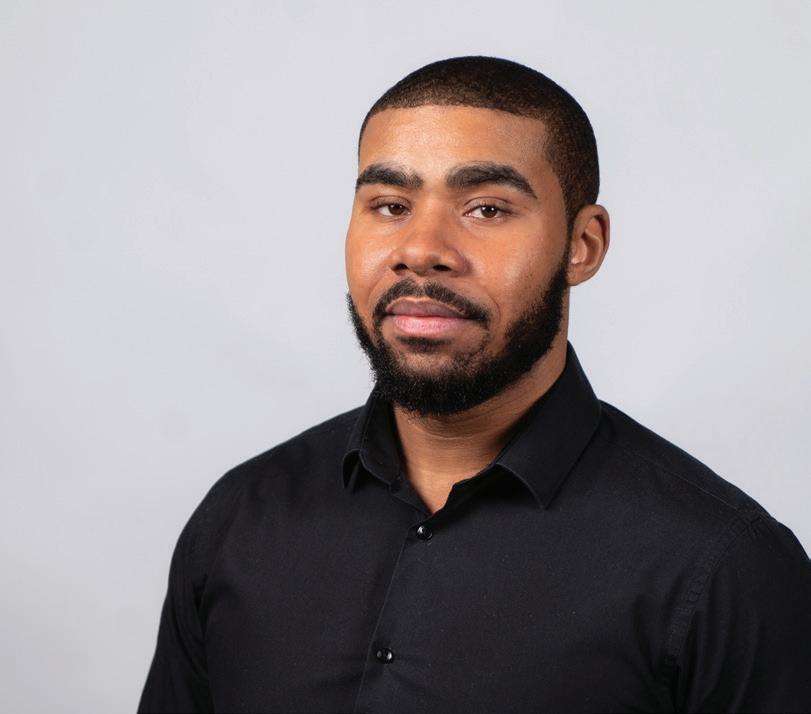
SHERIDAN:
Students should be given their allocation position before they rank foundation schools
STEPHENSONHESKEY: ‘The UKFPO is calling this a success’
The Manchester graduate who spoke to The Doctor, whom we have chosen not to name, had the north west at the top of her list. She was happy to be sent to any of her top three, which included Yorkshire and Humber and Trent, and would have been content with her fourth or fifth choices, West Midlands North and West Midlands Central.
Instead, she was sent to the one deanery from where she would have to fly back to see her family and her partner, Northern Ireland. The offer of her final choice skewered her plan of moving back to her family home to get on her feet financially after medical school.
‘It’s not just that moving to a different nation is expensive,’ she says, though noting Northern Ireland has the lowest hourly rate for junior doctors. ‘Being so far away will have an impact on my mental health. I tried to explain my situation, that I relied on bursaries while at university, but I was told it was not a unique circumstance. They’re treating us like numbers.’
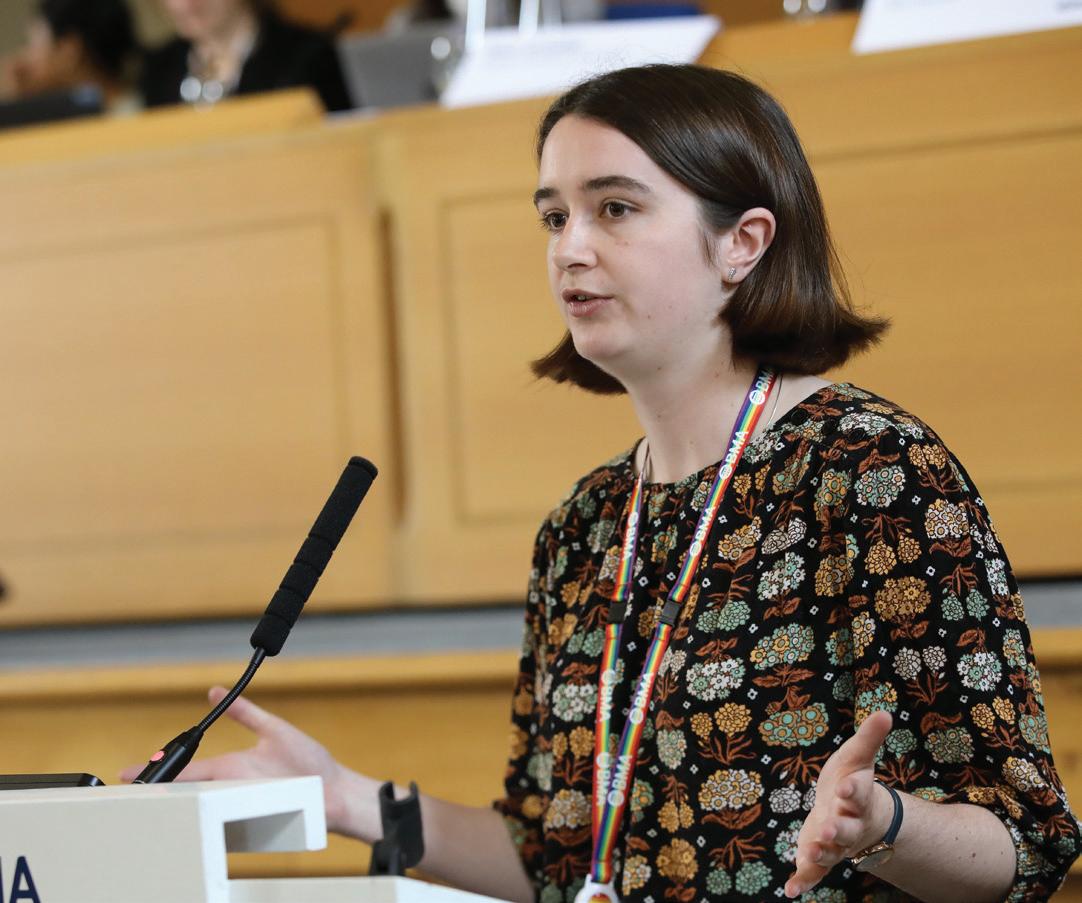
to any other region’ and is ‘sure there are people who would swap with me too’.
In the previous system, it was common for final-year medical students to make their foundation-school choices based on allocation rankings they were given in advance.
That allowed tactical choices, for example using competition ratios from previous years to work out which less-popular foundation schools they might be happier with and putting them higher in their order so that they had more chance of getting a place they would settle for, particularly if their allocation ranking was lower.
‘Being so far away will have an impact on my mental health’
‘If I’d have known my ranking, assuming now that it’s probably quite low, I would have put West Midlands North first because it had a lower competition ratio,’ explains the graduate. ‘I could have feasibly lived at home and driven.’
She said the UKFPO ‘seems to be obsessed with how many people got their first choice’, suggesting: ‘Wouldn’t it be better if more people got one of their top five? People can live with that. Why rank our choices if so many people are given their last choice? It’s an absolute mess.
‘People say it’s only two years – but I want to put down roots, not be in a position where I’m waiting to move again. It’s put a real dampener on my graduation.
‘One of my friends who was in the same position isn’t going. He’s withdrawn altogether. They’ve lost a good doctor in him.’
There is no system for swaps, unless a doctor’s circumstances have changed since their initial application. The graduate says she ‘would literally swap
Her feelings were supported in a debate at the recent BMA MSC conference, where a motion passed calling for final-year medical students to be given their random allocation position before they rank foundation schools, thus ‘allowing them to make an informed decision’.
Eleanor Sheridan, a Cambridge student, tabled the ‘unblinding’ motion, recalling how two friends in their final year during the previous system made tactical choices.
‘One of these friends is really risk-averse,’ she explained. ‘Her score was really high, so she was probably going to get what she wanted. This is the only reason she felt happy ranking highly the deanery she actually wanted; knowing her ranking was really important.
‘The other friend knew she was going to be ranked
low. She knew she probably wasn’t going to get the jobs she wanted in the region she wanted. Getting the jobs she wanted was important to her, so she picked a different region knowing she would be lower ranked than she hoped.
‘They were able to make an informed decision about where they wanted to apply, based on knowing how high or low they had been ranked. With the new system that isn’t an option. You rank your deaneries with no idea what your randomised position will be.’
She told the conference: ‘We spend four to six years being trained how to make informed decisions, and then suddenly when it comes to where we need to live and work for two years they go “nah, let’s make this as blind as possible”.
doctors who received lesser-ranked choices to be given a form of ‘reimbursement’, either financial or via support with housing – although it was noted that a relocation and travel expenses policy already exists.
‘I couldn’t plan where I’m going to live. I couldn’t plan annual leave. I couldn’t plan any events’
The conference also backed a long-term increase in the number of foundation school places, with a focus on more densely saturated areas of application. However, MSC co-chairs Chinelo Nnadi and Shivani Ganesh criticised an announcement of 350 additional medical school places, which came after the debate, saying it will only work alongside more academics and other educators and ‘improvements in the way new doctors are allocated their first role within the NHS’.
‘If people are able to make an informed decision, they’re more likely to end up somewhere they’ll be happy for those two years. That’s good – not just for us but for our patients, and everyone else we work with. Happier doctors are better doctors.’
Some suggested being given a low allocation ranking could negatively affect doctors in the crunch exam period, but Ms Sheridan said she and fellow students would ‘much rather have the information than the stress of not knowing’.
In the interim, the motion asks for newly qualified
As well as those given their lowest rankings, an estimated 1,000 final-year students were initially given ‘placeholder’ positions, meaning they were assigned to a foundation school but could end up working anywhere within it, in a to-be-confirmed job. Deaneries can be as vast as all of Scotland, the entirety of Yorkshire and Humberside, or ‘Peninsula’ which covers Devon and Cornwall.
While the UKPFO says ‘all applicants are guaranteed a role and have been told where in the country they will be based’, some ‘placeholders’ were told they would only find out which hospital or trust they are to work at three weeks before starting – giving little time to find

DISAPPOINTMENT: Under the new system, 37 times more applicants than previously received their lowest-ranked choice, according to calculations by the BMA medical students committee
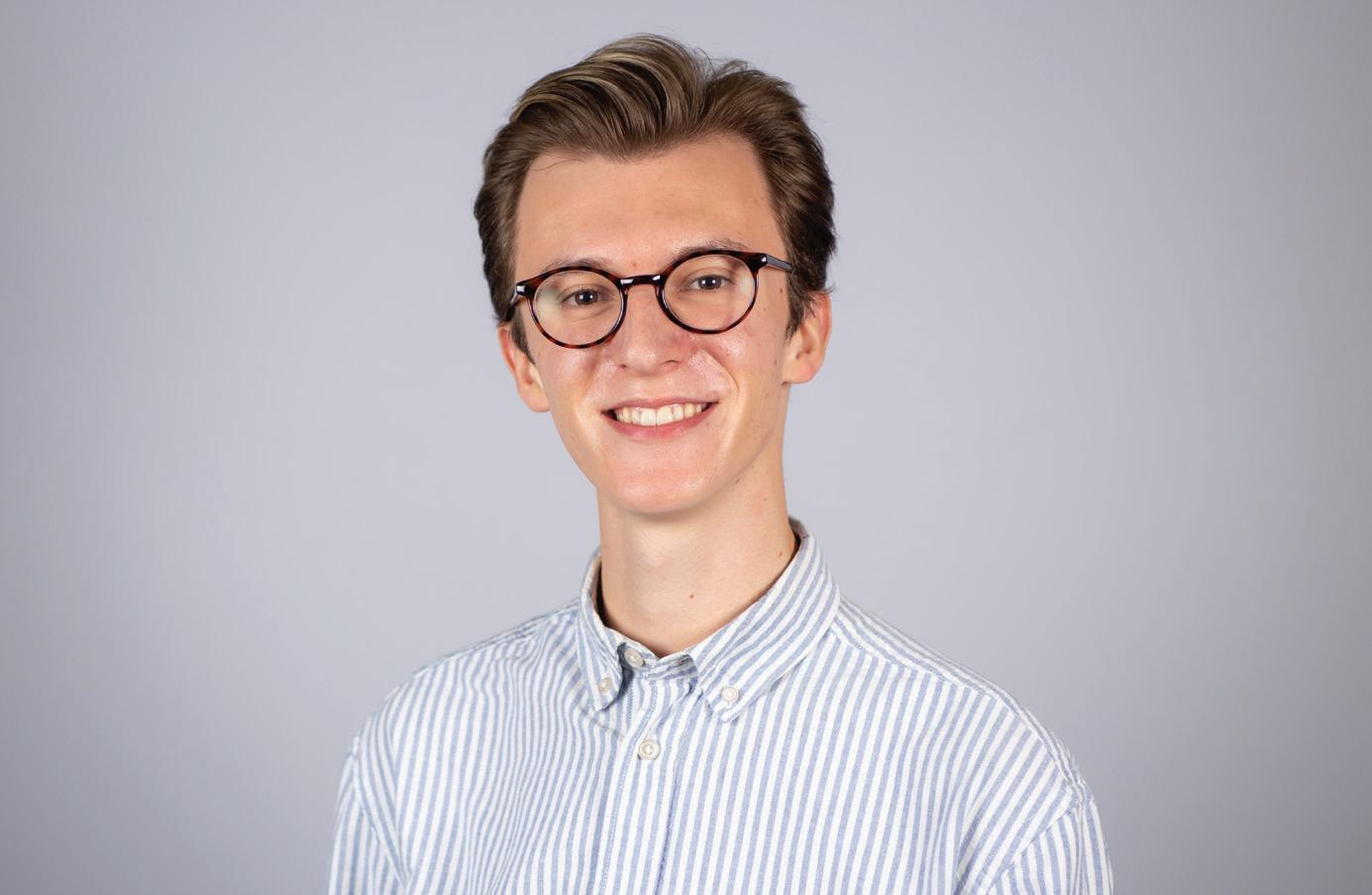
somewhere to live, or mentally prepare for the move.
The MSC pointed out NHS England’s guidance says doctors’ work schedules should be provided at least eight weeks in advance – a pledge deputy chairs Rob Tucker and Luke Stephenson-Heskey said they were ‘exceedingly concerned’ would not be met for incoming foundation year 1 doctors in ‘placeholder’ posts this year. The UKFPO says ‘almost all’ applicants have now been allocated an NHS organisation.
One ‘placeholder’ graduate who spoke to The Doctor, whom we have also chosen not to name, made her choices based on prioritising caring responsibilities and her own medical appointments as well as to save on rental costs by living at home.
She was given a ‘placeholder’ position at LNR (Leicestershire, Northamptonshire and Rutland) foundation school. Her first choice would have been in Nottinghamshire, but because that is in the wider Trent area she felt she had a better chance of being closer to home in LNR.
TUCKER: Situation exacerbates retention problems
when The Doctor went to press, she was expecting to have to wait until 20 June to find out the details of her foundation year 1 job, despite now knowing where it is going to be.
She adds: ‘There’s this sense that new doctors should just be happy with whatever they’re given. That isn’t very fair. You don’t have that in other graduate jobs. It’s made me wonder whether I can progress in the medical career.
‘If our performance doesn’t matter, and it’s just down to luck, it feels like everything we’ve worked for has been for nothing.
‘There’s this sense that new doctors should just be happy with whatever they’re given’
‘The old system wasn’t perfect, but you never really heard of anyone getting their last choice. If the old system was still in place, I’m almost certain I would’ve been able to get a job at a hospital five minutes from my house. I could have at least had some level of control.’
Despite knowing her foundation school, as a ‘placeholder’ she then had to wait a further six weeks in limbo to find out which hospital or trust she will be working at, meaning her commute could have been anything from 45 minutes to an hour and a half. Initially, she had been told to expect this information on 4 July – and that was communicated in the middle of her final exams, affecting her preparation.
‘I couldn’t plan where I’m going to live. I couldn’t plan annual leave. I couldn’t plan any events. I couldn’t even contact anyone with regards to what I need to do before I start. Nothing,’ she explains. ‘It adds a lot of stress.’
Eventually, she was told which hospital she would be working at on 30 May – and it was ‘in no way commutable’ from Nottinghamshire. But
Others share this graduate’s unhappiness with the UKFPO’s move towards ‘demeritisation’, arguing that removing the incentive of a better allocation based on medical school performance risks creating a culture of doing the least possible to pass.
Second-year international medical student Ekansh Rathore describes the situation as ‘a shambles’ and is planning to move to work in another country if he is allocated a foundation school he is unhappy with.
‘I don’t see why they’ve gone ahead and randomised the entire process,’ he tells The Doctor. ‘Now you just need to pass; there’s no motivation to get a merit. Why should someone who has performed really well miss out when someone who has just scraped through gets their first choice? The process of applying for medical school is very competitive, so you would expect the same standards when applying for foundation school.
WEBB: Other ways of tackling recruitment in under-doctored areas

It feels like the quality is going downhill.’
He would like to see a limit placed on how far away from their preferences graduates are sent – a section of the MSC motion that did not pass – and backs financial support for those sent far away.
Mr Rathore, from Singapore, adds: ‘It’s taken me some time to adjust to living in London for medical school, and I might have to do that all over again. It’s frustrating because you have such little choice in the matter.’
Others argue that better medical school performance does not necessarily mean graduates will be more competent doctors, and point to studies before now which have suggested the SJT exams were discriminatory.
Stephanie Webb, a student at Oxford, says: ‘Any ranking system means people from ethnic minorities, or less affluent backgrounds, tend to do less well so don’t get the more competitive places.’
this debate, not only because of the well-publicised workforce crisis but the cost to the taxpayer to train a doctor, which the Government put at £230,000 back in 2017.
Mr Tucker says: ‘We are struggling to retain doctors already, and this is making matters worse. You should never be locked into a profession, but if a doctor or would-be doctor’s decision to leave the NHS is based on a system issue then it is not their individual fault.’
Mr Stephenson-Heskey adds: ‘No one wants their hand held but the next generation should be supported through this massive transition from student to doctor. Students are left in the dark, feeling anxious and nothing is being resolved.
‘Students are left in the dark, feeling anxious and nothing is being resolved’
They say fixing the ‘societal issue’ of underdoctored areas is important but believe this should be done through incentives to move there. ‘There should be opportunities to do audits and research in every single region of the UK,’ they say, arguing this would even out the competition ratios and make more doctors feel like they want to stay and progress in the NHS.
Not only are would-be doctors, such as the Manchester graduate’s friend, dropping out before they begin; many say they are more likely to leave the NHS – either for another country or another profession – after their foundation years if they end up in an area they ranked lowly, exacerbating the ‘F3 and flee’ mentality already created by poor pay and conditions for junior doctors.
Deputy MSC chairs Rob Tucker and Luke Stephenson-Heskey say retention is a crucial issue in
‘We wouldn’t want to go back to how it was before, but there need to be tweaks to how PIA is run. We were in support as a temporary solution but now we’re told it’s a permanent solution. It’s making some students feel hopeless and, in a sense, experimented on.’
The UKFPO is evaluating how the process has worked, and feedback it has received. An NHS spokesperson told The Doctor : ‘Three quarters of applicants have been offered their first choice, higher than in the last two years, and the allocation process was changed after feedback from more than 14,000 medical students and other organisations including the BMA, with the vast majority opting for this process.’
Mr Stephenson-Heskey concludes: ‘The UKFPO is calling this a success, but while it works technically it doesn’t work for students.
‘We have said all along that we will work with the UKFPO to build a better solution, one that works for all students, doesn’t create anxiety and helps that transition into being a doctor.’
‘You see so much and you have such a privileged insight into people’s lives’

From the Falklands to the Western Isles, island-hopping doctor Rebecca Payne has provided out-of-hours care in many beautiful and isolated places. Peter Blackburn follows her to Orkney to find out about life as a travelling GP
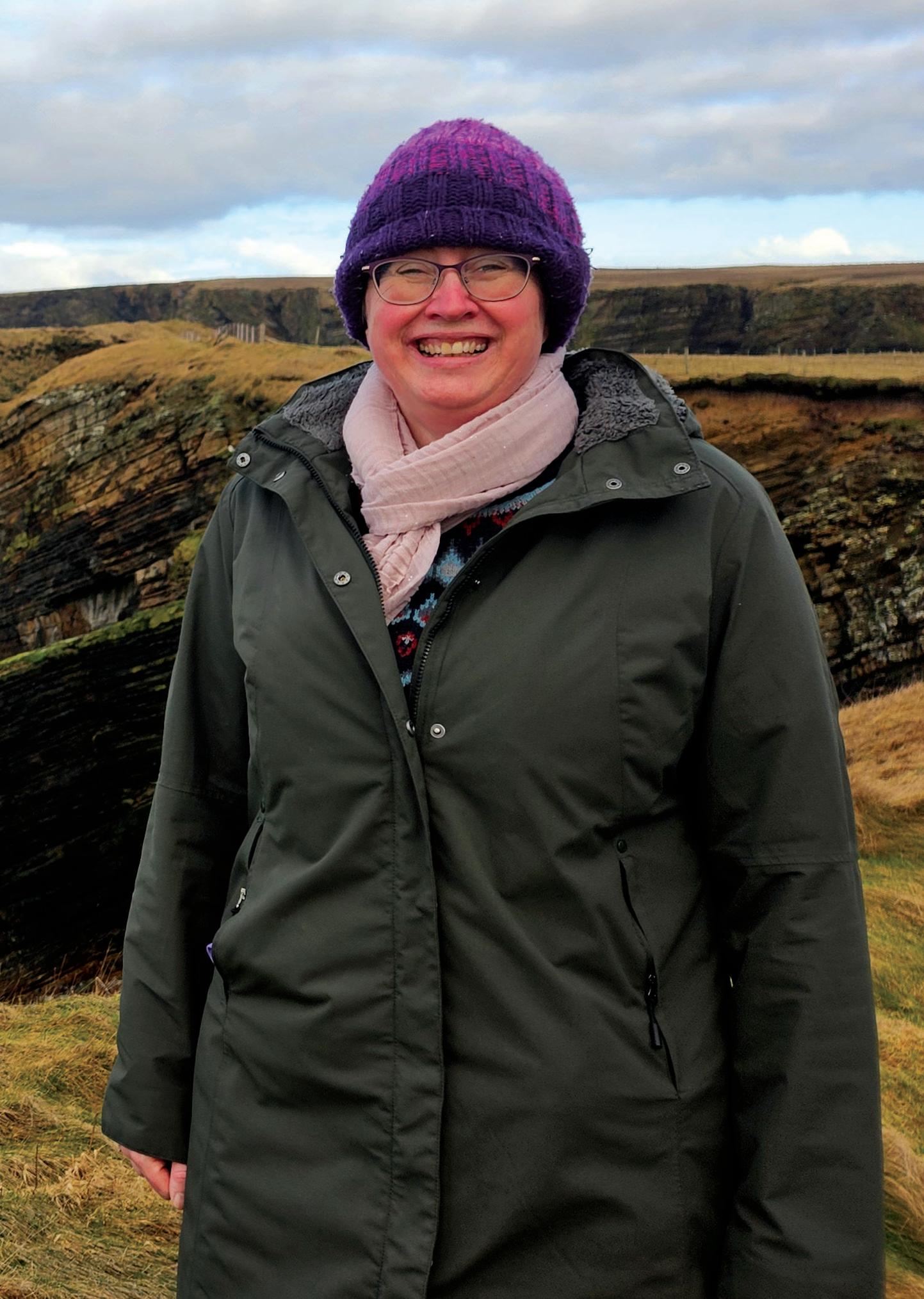
‘Trio face attempted murder charges,’ reads the front page of The Orcadian newspaper on the day The Doctor lands in Kirkwall, the largest town in Orkney.
GP Rebecca Payne – part way through a week-long shift working out of hours on the islands – carried out the fitness-to-detain medicals for the three suspects amid an otherwise relatively quiet night. It is a story that says it all about working as an island GP – general practice is often at the heart of communities but in isolated and rural areas such as Orkney doctors often find themselves thrust into the thickest of the action. Each shift could mean being a social worker, providing emergency care, or being
PAYNE: ‘You might see a child with a croup or it might be a major heart attack’
an ambulance driver among a whole host of other potential roles and responsibilities. One might even be at the centre of the biggest news story on the islands.
‘I love being a generalist,’ Dr Payne tells The Doctor as she takes us on a tour from Kirkwall to Burwick – at the very south of the islands. ‘Here, you see so much and you have such a privileged insight into people’s lives at incredibly important times.’
Dr Payne, who is on a rota with seven other doctors who each spend one week in eight in Orkney, adds: ‘I really enjoy doing a little bit of everything using skills you wouldn’t normally use. The idea of being in a surgery doing chronic disease management all day would drive me potty. And I love islands and I’m really attracted to the coast. It’s magical here – the light is amazing.’
Working on the main islands of Orkney, which are connected by the iconic Churchill barriers – built largely by Italian prisoners of war during the Second World War and intended to block off Eastern approaches to the naval anchorage of Scapa Flow but now serving as causeways connecting the mainland with smaller islands to the south – is not always so different to life as a GP in much of the UK. There is a modern, well-equipped hospital, lots of local amenities and relatively good transport links and community services.
However, the separation from the mainland and hospitals with specialist staff and facilities, and the simple difficulties of geography and rural life, do raise challenges. From bad phone signal across the islands to having three patients requiring help at the same time in far-flung locations, there are many concerns most doctors will never have to face.
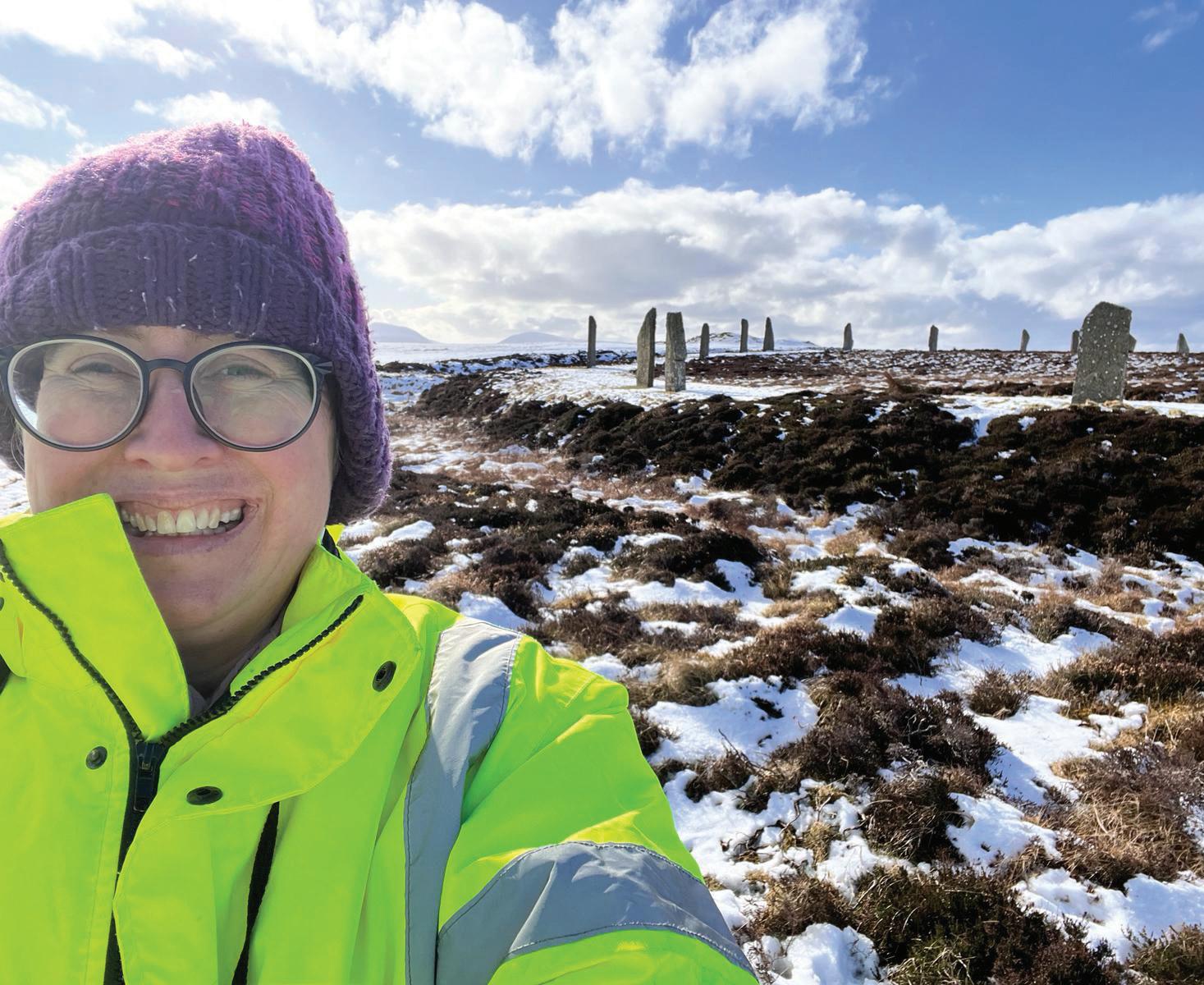
It is, though, on the most remote island settings where the challenges are most particular and pressing.
‘On some islands you are essentially alone. You might have a part-time receptionist or no receptionist at all with you. You might have to do everything from first response to ambulance calls, taking bloods to the plane and collecting medications from the ferry – it’s the antithesis of working to the top of your licence but it is so much fun. I really like some of those aspects and the challenge and privilege of sometimes just being really on your own.’
She adds: ‘It’s just whatever comes on that day. You might see a child with a croup or it might be a major heart attack.’
COLD COMFORT:
Dr Payne enjoys the scenery on the Orkney islands and one of two out-of-hours practice cars (right)
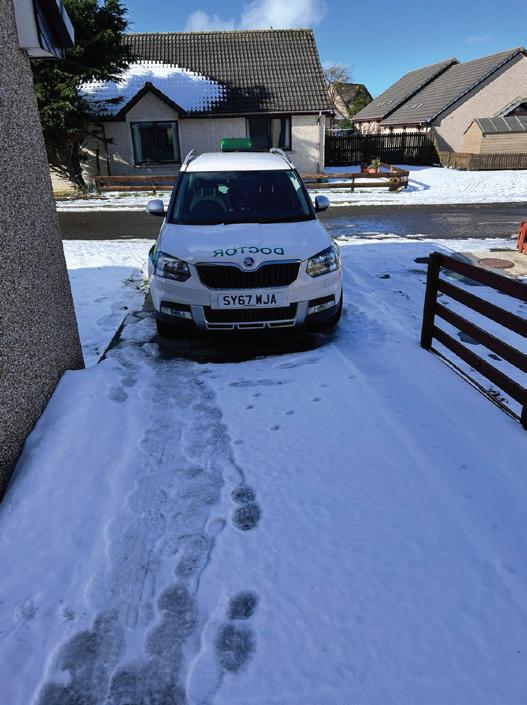
Ronaldsay who was driving over the barriers and a wave wedged her car down into the side of the road and she couldn’t get out. A police car came to rescue her and also got stuck.’
‘I really enjoy doing a little bit of everything using skills you wouldn’t normally use’
There are two out-of-hours cars on the Orkney mainland. Each is packed meticulously with all the equipment and tools that might be required – everything from basic dressings to intubation equipment. One of the bags even contains a drill for boring through bone. Dr Payne says the first time she was stranded alone on an island with these bags she wondered ‘what on earth am I doing’ but then the training, provided by BASICS, kicks in and the sense of opportunity to play an important role in an amazing place takes over.
On one occasion, Dr Payne had a call to go and see a patient on one of the islands connected by the barriers just an hour and a half before local authorities were due to assess their safety – and likely shut them. ‘It was utterly terrifying and the tide was rising so I knew it was only going to be worse coming back. I drove over barrier one which was scary but barriers two and three were particularly terrifying.’ Luckily, another doctor on the island saved the day and was able to see the patient – preventing Dr Payne from making the particularly scary final crossing.
When The Doctor visits, all is calm, though. On a sunny day like this the water here looks almost tropical and the islands gleam in brilliant light. It isn’t remotely hard to see the attraction.
‘You can be waiting to be needed then suddenly doing quite high-stakes stuff’
Geography and transport obviously become even more challenging on the smaller islands, too. On one occasion Dr Payne was left stranded on one of the Orkney islands during New Year owing to stormy weather, and even the islands connected to the mainland can become isolated when waves crash over the barriers and they have to close.
‘There’s a story of a locum GP down on South
Dr Payne, who is based in Wales and works in academia when she is not on Orkney or the other islands she locums on, has been covering out-of-hours shifts on the islands for four years now, having signed up just before the onset of the COVID-19 pandemic.
At the height of the Omicron variant surge there were fears that just one out-of-hours doctor might be swamped with 200 patients a day over a bank holiday weekend.
‘Feast or famine’ There have been many memorable moments since, including a middle-of-the-night dash to manage a man’s heart attack until help arrived – and ending

up continuing his care in the back of the ambulance for the 40-minute drive to hospital because only one paramedic was available.
‘It can be a real feast or famine thing. You can be waiting to be needed then suddenly doing quite highstakes stuff,’ Dr Payne says.
While shadowing Dr Payne – based in a small treatment room within the emergency department at Kirkwall’s Balfour hospital – we meet a fellow in rural medicine working with her who had recently found herself organising the dramatic rescue of a patient who had suffered a major stroke while one of the smaller Orkney islands was covered in snow –with farmers pulling together to help the man. The uniqueness and variety of a role in a place like this is highlighted when a man who works on an oil rig presents with an infected finger, having been treating it at home for days using a poultice of bread.
‘UNFORGETTABLE’: One of the many beaches to visit on Orkney
much need elsewhere, but after a few days in Orkney and in her company it seems she would be sorely missed here, too.
‘You can be the doctor that you want to be and come home feeling like you’ve given amazing care’
Islands have become something of an obsession for Dr Payne. Alongside her regular work in Orkney she also covers shifts on Barra in the Outer Hebrides where the aircraft lands directly on the beach – ‘It is so cool – exhilarating’, she says –and has worked on the Uists. Last summer, Dr Payne fulfilled a long-term fantasy and spent a month in the Falkland Islands – working in a hospital, emergency departments and out-ofhours GP services.
For many people islands such as Orkney represent escapism – and perhaps there is an element of that for Dr Payne. This is a doctor whose love for people and her caring craft burst out when she speaks. But in many parts of the NHS of 2024 those values can often feel compromised.
‘On some islands you are essentially alone. You might have a part-time receptionist’
‘I’ve done some really difficult, hard jobs in the past. Working in underresourced surgeries, being a clinical director where you feel you can make little to no change due to wider context and the way services are run and now I get to do this. I have to pinch myself sometimes.’
‘So cool’
Dr Payne says she sometimes feels ‘guilty’ about running away to work on the islands when there is so
Doctors covering shifts in the Falklands are flown from Brize Norton in Oxfordshire in an RAF aircraft. Dr Payne’s time on the islands included all sorts of healthcare from hospital work to working as a flying doctor, hopping between remote islands next to the pilot on a tiny plane. And when not at work it was a ‘totally unforgettable’ experience too – with off-road 4x4 journeys and trips to see ‘majestic’ colonies of penguins on the beach, some just 10 minutes from the hospital.
After days spent with Dr Payne, the sense is that island escapism may be a pleasure but it is also absolutely business for her above anything else – and perhaps a rediscovery of the intimacy of working in general practice in communities which really value it.
Dr Payne says: ‘The greatest privilege about working here is you can be the doctor that you want to be and come home feeling like you’ve given amazing care. That’s the greatest privilege – not the landscape.’
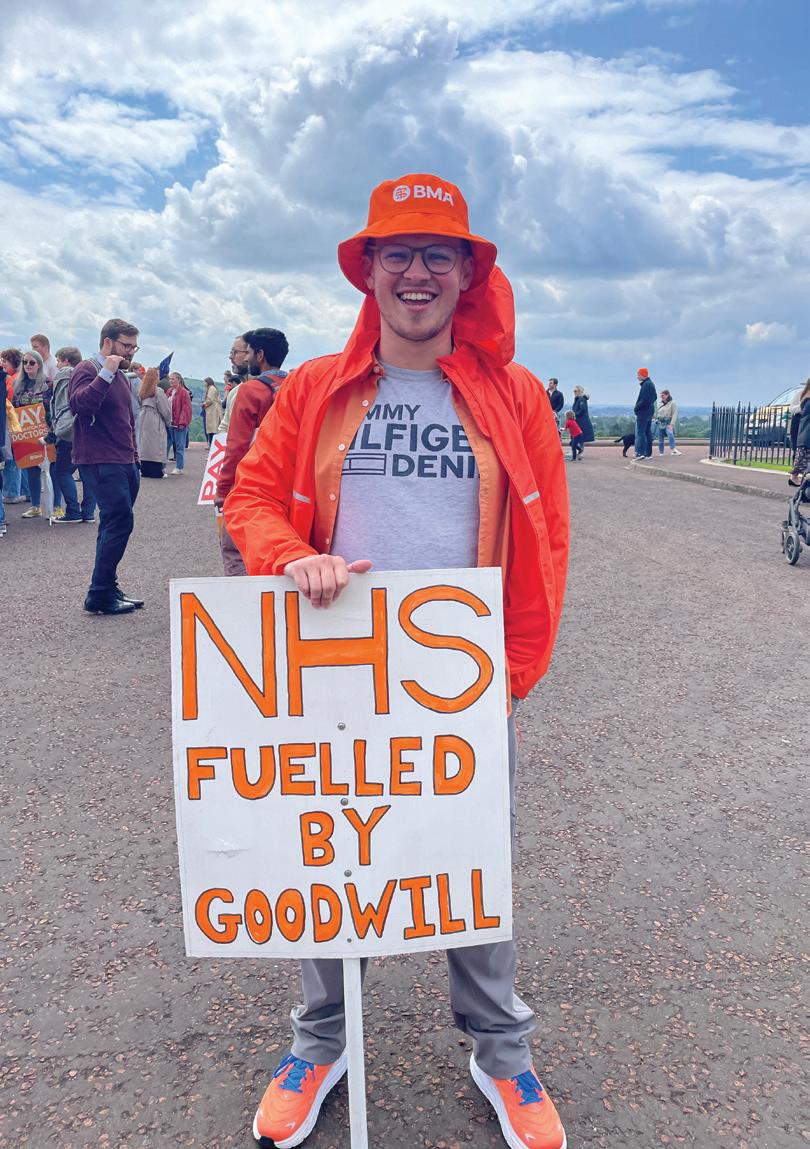
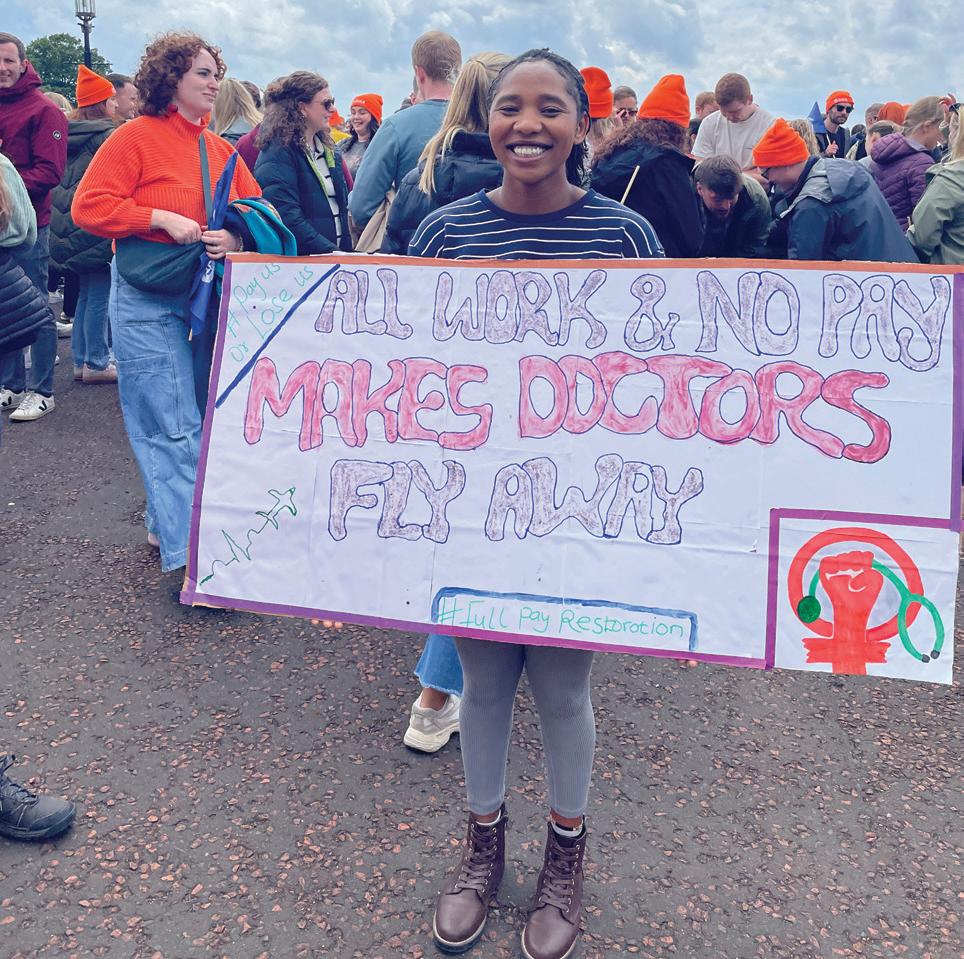
Junior doctors went on strike in Northern Ireland and conveyed with passion and placards the case for fair pay. Jennifer Trueland reports
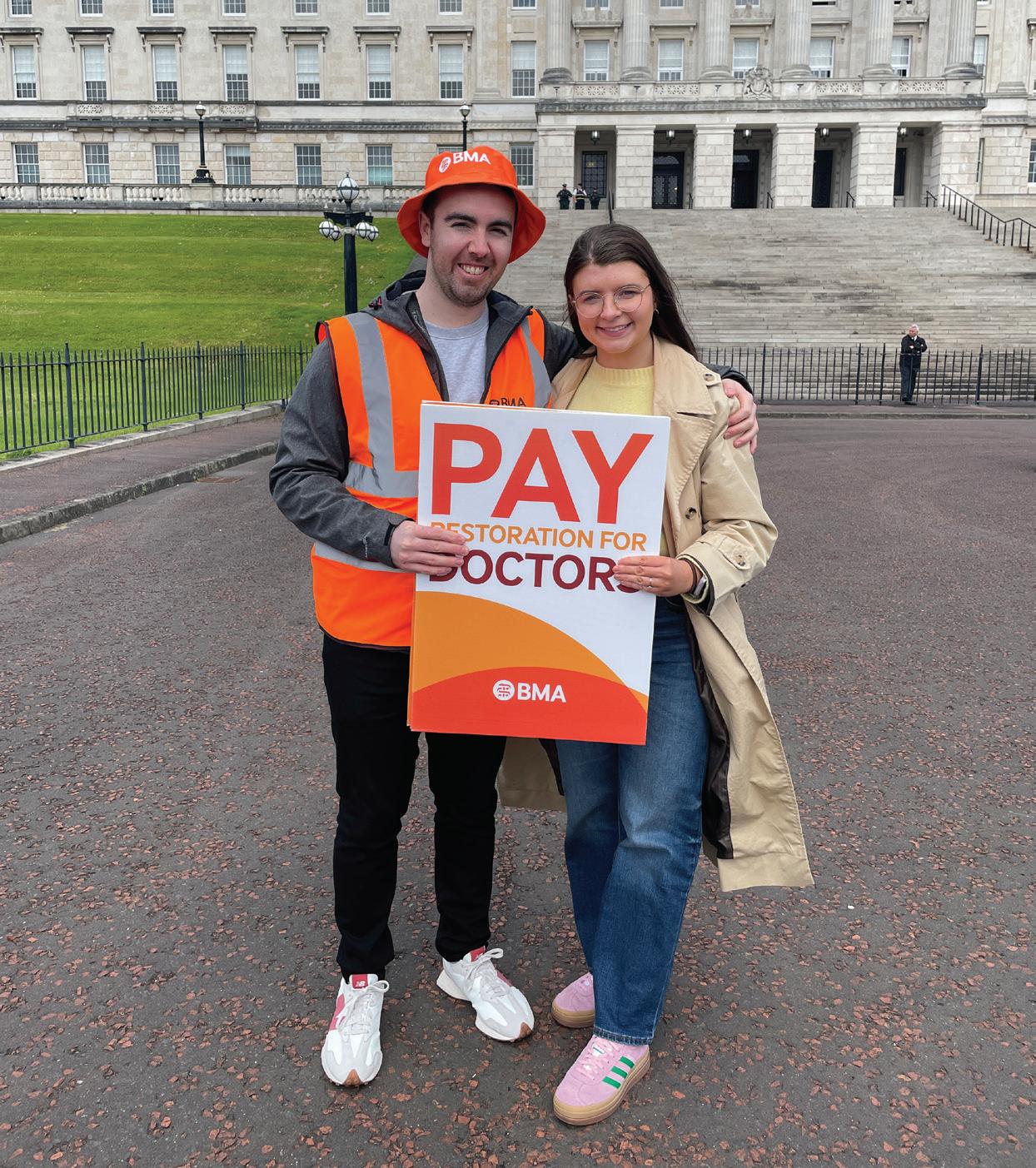
‘We need urgent action now’
Asa medical student in Belfast during the pandemic, Tim Neill worked as a healthcare assistant. Now in his first foundation year, as a qualified doctor, there are days when he earns less than he did as a band 3 healthcare assistant.
‘On a Sunday, I would have been taking home more than I do now,’ says Dr Neill. ‘When you look at our hourly pay –and there’s a difference in contracts between England and Northern Ireland – we are still on a basic wage of about £12.70 an hour. And yes, there’s banding on top of that, but that’s to compensate for the out-of-hours commitment, which is huge.’
He was one of hundreds of junior doctors from across Northern Ireland who gathered at Stormont on 6 June to demand full pay restoration. The demonstration took place on the first day of the latest 48-hour strike, which saw juniors walk out of hospitals and GP practices until 7am on 8 June.
It was an emotional event, packed with creative placards, senior BMA figures, politicians – and a host of dogs, children and babies – and soundtracked by impressively choreographed
chants. ‘What do we want? Pay restoration. When do we want it? Now,’ and ‘One, two, three, four: you’ve driven our pay to the floor; five, six, seven, eight: restore our pay it’s not too late,’ being just two.
Urgent action is needed, said Fiona Griffin, chair of the BMA Northern Ireland junior doctors committee, who led the march to the Parliament building on a day that was bright but with a chilly breeze. She called on newly appointed health minister Mike Nisbett to listen and act.
She also urged the demonstrators to raise their voices so that the politicians could hear their demands and recognise the strength of feeling. MLAs from different parties addressed the rally and most pledged their support – but there was no sign of Mr Nisbett, nor of any of his colleagues on the Northern Ireland Executive.
‘We’ve seen our pay eroded by more than 30 per cent; inflation has soared, but our pay has not kept up,’ said Dr Griffin. ‘Today’s rally is about showing those in power that we need urgent action now on our pay asks if they are serious about saving and futureproofing the health service as we know it. We are extremely disappointed that this latest 48-hour walkout could not be averted but there has still not been any progress in our pay negotiations.’
Vivek Trivedi, co-chair of the BMA junior doctors committee, also joined the demonstration. ‘We’re standing here at Stormont to tell the people in power that you will not go anywhere,’ he
said, to loud cheers from the crowd. ‘You will be heard, and things must change.’
Demonstrators who spoke to The Doctor expressed concern and outrage about their pay and conditions.
Ciarán Mooney, an SHO at Belfast’s Royal Victoria Hospital, was particularly frustrated about understaffing, and its effect on patients. Why, he asked, did ministers care about safe staffing levels only on strike days, not every other day?
Blánaid Canavan, a registrar in cardiology at Altnagelvin Hospital in Derry, graduated in medicine eight years ago and worked in Australia for five years. Although she had qualified as a specialist in Australia, she has to spend a further three years sitting UK exams before she can progress. This is obviously hitting her hard in the pocket. ‘I came back because I wanted to be nearer to my family,’ she says. ‘But I’m taking strike action because we’re not paid enough. I had £50 left in my bank balance before I got paid. I’m working long hours, 12 days in a row, but feel like I’m being paid for a nine-tofive, five days a week job.’
Rhys Kelly, a specialty trainee 4 in anaesthetics, also at Altnagelvin Hospital, said hospitals were staffed on ‘goodwill’, but, with so many doctors leaving to work elsewhere, this is not sustainable. ‘A lot of people are going away,’ he says. ‘And who can blame them? From Altnagelvin it’s a short drive to Letterkenny [in the Republic of Ireland] where junior doctors can earn triple what they get here. Doctors are burning out – we need to attract more
people to come back here, and that means better pay.’
‘Fly away’ Jacqueline Michael, an SHO at Belfast’s Royal Victoria Hospital, studied medicine in Sheffield before being posted to Northern Ireland for her foundation jobs. Although she likes living and working here, she admits she is looking elsewhere. Carrying a placard that reads ‘All work and no pay makes doctors fly away’, she added: ‘I have friends who have gone to Australia and their lives are so much better. They get paid more and the conditions are better.’
It’s the same story for Oisín Fearon and Emma McCann, who are considering a move to Australia after their wedding next year.
Dr McCann is a foundation year 2 in the Western Trust, while Dr Fearon works as a locum – partly because of the greater flexibility this offers, but also because it pays more than going into training. This is important, as, like most junior doctors, he is saddled with tens of thousands of pounds of debt from medical school, as well as the costs associated with being a doctor (such as training, exams and registration fees).
At the moment, he can’t see a realistic future for himself in Northern Ireland.
‘I don’t see myself working here long term, unless things change substantially,’ he says.
‘There’s a lot of sacrifice and the pay is crap, it really is. I remember realising on a Christmas shift or at New Year that I was easily the lowest paid in the hospital. It’s just not sustainable.’
‘We’ve seen our pay eroded by more than 30 per cent; inflation has soared’
‘There’s a lot of sacrifice and the pay is crap, it really is’
‘We won’t know the full extent of this for probably quite a long time and it will come up in emergency department attendances, in death rates and in an awful amount of harm’
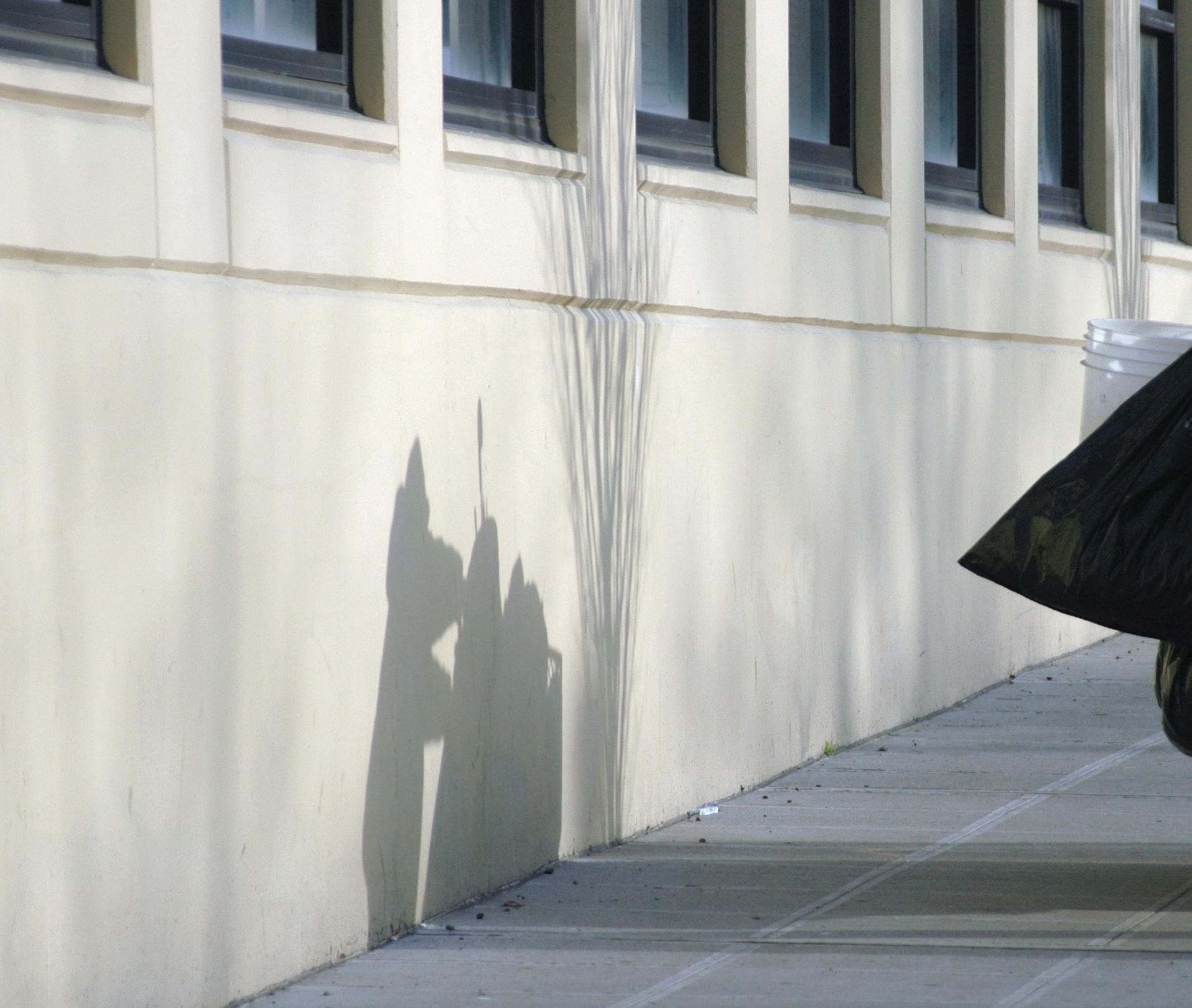
The closure of a specialist GP practice serving homeless people has led to grave concerns about their care and the impact on other services. Another facility also fears for its future. Peter Blackburn reports
Homeless patients living with mental and physical health problems and destitution have been left with nowhere to turn other than overstretched emergency departments following the closure of a specialist GP practice.
That is the warning from doctors and senior charity staff – who say they fear rising death rates, an ‘awful amount of harm’ and are witnessing people being excluded from healthcare – following the closure of
Hunter Street in Glasgow.
The practice, which provided specialist primary care, outreach, and close links to a wide range of other services, was closed last year and local experts say the effects are being felt by the most vulnerable people in their communities – with many demanding the restoration of services.
The Doctor has learned that a review of the changes has been completed by Glasgow health leaders and

is going through a ‘governance process’. No details of the process, its aims and scope, or conclusions were provided when requested.
Fears have also been raised about the future of a similar service in Edinburgh as board documents outlining massive savings requirements reveal nearly half of all cuts facing GP practices in the Scottish capital, which are run directly by the health board, are to fall on one practice – the city’s specialist homelessness primary care facility.
A senior member of staff at a Glasgow homeless charity, whose identity has been protected, urged local health leaders to revisit their decision and return to previous service arrangements – asking why cuts would target the people who ‘need services the most’.
They said: ‘It’s an unfathomable decision.
‘Everybody knows the evidence. It’s irrefutable. But you might say that the managers in Glasgow are refuting it with their actions. You have to take services
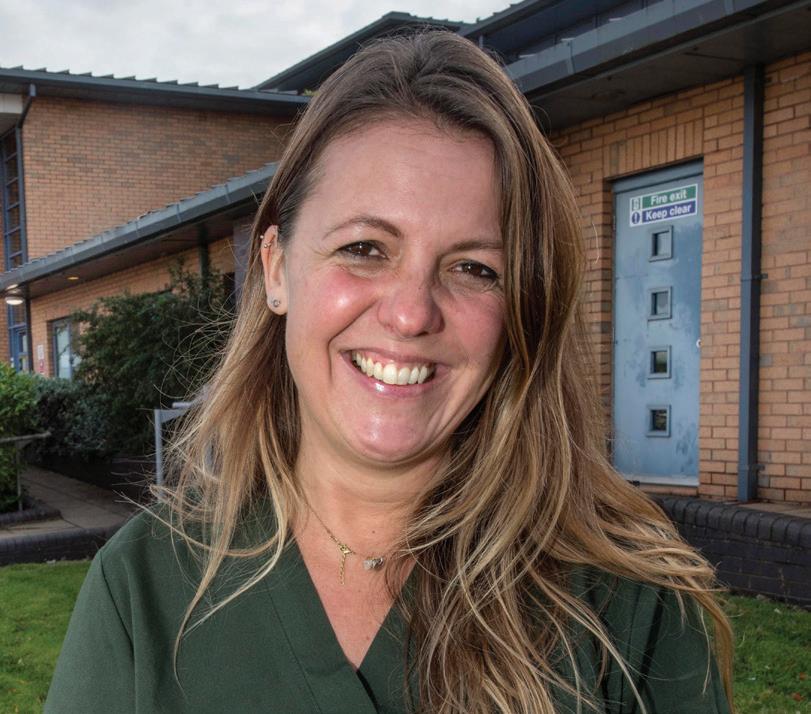
LUNAN: ‘Non-specialist general practice does not receive the additional funding that is needed’
to these people – you have to have services that are proactive, flexible and very person-centred… Glasgow has taken a view that a normal primary care approach is appropriate. I don’t think anyone else in the country holds the view that those services are appropriate.
‘The really sad thing is we won’t know the full extent of this for probably quite a long time and it will come up in [emergency department] attendances, in death rates and in an awful amount of harm.’
Phil Wray, head of projects at Glasgow City Mission, a Christian charity which runs a day centre and emergency overnight accommodation for homeless people, says it has become difficult to register homeless people with a GP, that the charity is often sending patients to Glasgow Royal Infirmary’s emergency department, and that their clients now have to be in an ‘absolutely extreme’ situation to get support with mental health issues.
He says: ‘We see incredible value in having a [specialist] primary care service in the city centre.’
While local health managers say audits suggest patients have been registered at other local practices, doctors remain concerned.
Carey Lunan, chair of the Deep End group of GP practices which work in the most deprived communities in Scotland, says there were continuing reports about patients struggling to access general practice which highlight the need for a specialist service.
She says: ‘The reality is that non-specialist general practice does not receive the additional funding that is needed to be able to offer the kind of support and wrap-around care that these patients need at this
very vulnerable point in their life – things like longer appointments, access to in-house mental health and addiction teams, housing officers and social workers too.’
NICE (National Institute for Health and Care Excellence) guidelines around care for homeless people suggest they should, ideally, be cared for in a specialist setting. While NICE does not have force in Scotland, its guidelines are often cited there, as they are in other countries outside England and Wales.
Dr Lunan says the closure could mean there is no-one taking overall responsibility for homeless patients, for coordinating their care, helping them to navigate services or provide them with routine parts of general practice such as blood tests, wound checks, sick lines, prescriptions and many other things.
review aimed to ‘focus resources through a complexneeds service, which looks to work with community GPs in a ‘proportionate manner’. It said an ‘urgent care and bridging service’ had been put in place to assist people to register with GPs and claimed patients previously registered with the homeless practice have ‘sustained registration within the community’.
‘You have to take services to these people –you have to have services that are proactive’
One local healthcare professional said the complexneeds service does ‘great work’ but has a very small caseload and that, in their experience, lots of patients who need care do not meet thresholds for access and are left stranded.
In a subsequent statement the partnership said it was ‘not aware of any evidence to suggest that the health outcomes of people experiencing homeless [sic] is affected by the way in which primary care is delivered’.
Andrea Williamson, a GP at Hunter Street for 18 years and professor of general practice and inclusion health at the University of Glasgow, says: ‘In terms of outcomes for people, the starkest inequalities in health are experienced by people who are homeless… But as systems come under pressure it so often seems to be that the bits of the service that are most needed, but perhaps there won’t be as much of a fuss about, are cut first.
‘People experiencing homelessness… have often had quite difficult negative experiences with healthcare, so they aren’t the sort of people who are going to put a letter in their local paper or register a complaint… In general these people don’t feel empowered. If this had been a service located in a middle-class area for middleclass patients there would have been an enormous fuss.’
Healthcare staff and local charity leaders have told The Doctor that, from their perspective, there was little to no engagement, no evidence shared of any impact assessments or planning documents and that patients and staff were bemused by what appeared to be a sudden change. Some raised concerns about a lack of monitoring of the effects since the changes and many took issue with the partnership’s claims about a lack of evidence of the importance of primarycare delivery to homeless people. One described themselves as ‘speechless’.
‘It often seems to be that the bits of the service that are most needed, but perhaps there won’t be as much of a fuss about, are cut first’
A doctor working in a Glasgow emergency department told The Doctor that many ‘demoralised’ colleagues are ‘concerned’ and feel they have seen an increase in attendances since the specialist practice closed – with services already under ‘the most pressure ever’.
They say: ‘The worry from us is that these people turn to the emergency department or become a more frequent attender and with a higher likelihood of admission if we don’t have a safe discharge plan because often specialist primary care and services in the community are the sorts of things we would refer back to from the emergency department.’
A statement from the Glasgow Health and Social Care Partnership, which made the decision, said its
In its statement, the partnership said it had ‘engaged actively’ with staff working at Hunter Street, third-sector organisations, people with lived experience and unions. It suggested efforts –including contacting patients, prescribing four weeks’ worth of medication, and a sevenweek period where some clinical and administrative staff worked to ‘ensure’ the care and safety needs of registered patients – had been made to minimise negative effects.
The Doctor has requested any impact assessments carried out by the partnership prior to making the decision as well as a copy of any reviews carried out subsequent to the decision under the Freedom of Information Act. At the time of writing this request has not been responded to but remains within legal timeframes.
In recent weeks it has emerged health leaders have also cut £200,000 from the budget of the specialist GP practice for homeless patients in Edinburgh, known as either The Access Place or The Access Practice.
The Edinburgh Health and Social Care Partnership
has outlined £59.7m worth of cuts as part of its ‘savings and recovery programme’ with £440,000 falling on nine health board GP practices in Edinburgh.
Almost half of that total amount is to come from a ‘review of non-core activity’ at the practice. In a document outlining the savings health bosses suggested they did not anticipate any ‘significant adverse impact’ as a result of the cuts but that a ‘full integrated impact assessment’ would be needed to confirm the effect of changes to the scope of the practice.
Pat Togher, the chief officer of the Edinburgh Integration Joint Partnership, the body which outlined the cuts, says Edinburgh is facing ‘unprecedented financial challenges’ but that the measures aim ‘not to cut services to vulnerable people wherever possible.’
The Doctor posed a number of questions to the partnership after being provided with this statement –including questioning what ‘wherever possible’ means in practice, requesting a breakdown of the £200,000 cuts and what that money was spent on previously, whether the partnership recognised the concerns of doctors about the effect on patient care, and whether this marks the beginning of a move away from commitment to a specialist model of homeless primary care. At the time of going to press the majority of these questions – sent on Friday, 3 May with a reply promised – have not been responded to.
The Doctor understands health professionals in Edinburgh are concerned about the future of the practice, with some fearing services such as psychology, psychiatry, housing, social work and substance misuse would be under threat, potentially affecting general practice care provided. One GP said the move was ‘morally wrong and doomed to fail’.
Dr Lunan says the Deep End group is ‘concerned’ that a worrying precedent had been set by the closure of Hunter Street in Glasgow – particularly given the ‘difficult financial times’.
She says: ‘It is important we learn lessons from the situation in Glasgow, and work together to make sure that a safe, high-quality, accessible and inclusive general practice service is available to anyone experiencing homelessness.’
BMA Scottish GPs committee chair Andrew Buist says: ‘This is a very regrettable development as there’s no doubt the homeless practices cater for patients who experience many of the highest health inequalities in Scotland with consequently the poorest health outcomes. It is also quite likely this move will just result in higher costs elsewhere in the NHS, including more attendances at [emergency departments].’
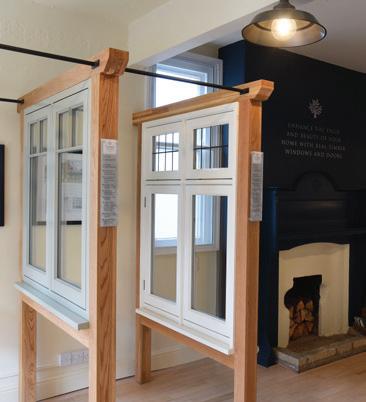







This month will once again see the city of Belfast play host to the BMA annual representative meeting, with the ARM this year adopting a more compact format, which will see proceedings conducted across two days.
The ARM’s status as the high point of the association’s legislative calendar almost goes without saying, with our annual conference providing you with an opportunity to form BMA policy and help set our agenda for the year ahead. Furthermore, ARM is a chance for different sections of the medical workforce to come together, united in a common cause, and to recognise the rich diversity of our membership and profession.
I am proud to say that, in recent years, the BMA has taken a number of steps designed to improve inclusivity, accessibility, transparency and representation at ARM. From the format of the meeting to the way speakers are prioritised to the election process.
While some changes have made a positive difference to representation, as representative body chair I am mindful that those of us attending ARM cannot afford to become complacent about our responsibilities to our fellow members and colleagues.
It is incumbent on all of us attending ARM to consider if we are adequately reflecting the make up and needs of the association’s membership and, if not, what we could be doing differently to improve this. ARM, after all, is not just about those people sat in the auditorium or stood behind the podium, it’s about every single one of our 193,000 members, many of whom I hope will be following online.
As well as the medical workforce in the UK, the outcomes of our conference are of interest and relevance to many of our international colleagues at bodies such as
the World Medical Association, Commonwealth Medical Association and European Medical Associations – the ripple effect is vast.
One of the most important ways we can do this, both at conference and throughout the rest of the year, is by encouraging conversations between elected members and those they represent. If you’re attending ARM as a voting member, do you know the views of your peers? And if you’re not attending ARM – who is representing your voice? The need for good communication and dialogue cannot be emphasised enough, with both absolutely essential to any successful and productive policy forming conference. ARM is not intended as a rubbing-stamping formality, and robust and healthy debate and differences of opinion on contentious issues are welcome and encouraged throughout the course of the conference.
Our diverse membership means that there will always be people on either side of a debate, and being able to hear all points of view is crucial if our elected representative body is to make an informed vote. Sadly, there have been occasions at ARM where our conversations have crossed a line or strayed into areas which are not in keeping with our behaviour principles, and how members are expected to conduct themselves.
The BMA has zero tolerance for bullying, harassment and discrimination, and activity deemed to be coercive or intimidatory has no place at ARM. As RB chair, I want to reassure you I will have no hesitation in challenging and calling out instances of unacceptable conduct and taking any steps necessary to put a stop to it.
Robust yet respectful debate is not simply about personal and professional courtesy, it is about creating a safe and tolerant environment at ARM, something which is ultimately integral to ensuring greater representation by empowering minority voices to speak out.
We have covered many difficult and contentious topics at ARM and we will always continue to do so. If we lose the ability to debate openly – we will cease to benefit from the diversity of our membership, and it’ll be to our detriment. If you would like to get in touch with the BMA and learn more about how you can get involved with your BMA, please write to me at RBChair@bma.org.uk or @DrLatifaPatel
Dr Latifa Patel is chair of the BMA representative body
The Doctor BMA House, Tavistock Square, London, WC1H 9JP. Tel: (020) 7387 4499
Email thedoctor@bma.org.uk Call a BMA adviser 0300 123 1233 @TheDrMagazine @theBMA
The Doctor is published by the British Medical Association. The views expressed in it are not necessarily those of the BMA. It is available on subscription at £170 (UK) or £235 (non-UK) a year from the subscriptions department. All rights reserved. Except as permitted under current legislation, no part of this work may be photocopied, stored in a retrieval system or transmitted in any form or by any means, electronic, mechanical or otherwise without the written permission of the editor. Printed by Warners Midlands. A copy may be obtained from the publishers on written request.
The Doctor is a supplement of The BMJ. Vol: 385 issue no: 8433 ISSN 2631-6412
Editor: Neil Hallows (020) 7383 6321
Chief sub-editor: Chris Patterson
Senior staff writer: Peter Blackburn (020) 7874 7398
Staff writers: Tim Tonkin (020) 7383 6753 and Ben Ireland (020) 7383 6066
Scotland correspondent: Jennifer Trueland
Feature writer: Seren Boyd
Senior production editor: Lisa Bott-Hansson
Design: BMA creative services
Cover photograph: Getty
Read more from The Doctor online at bma.org.uk/thedoctor

